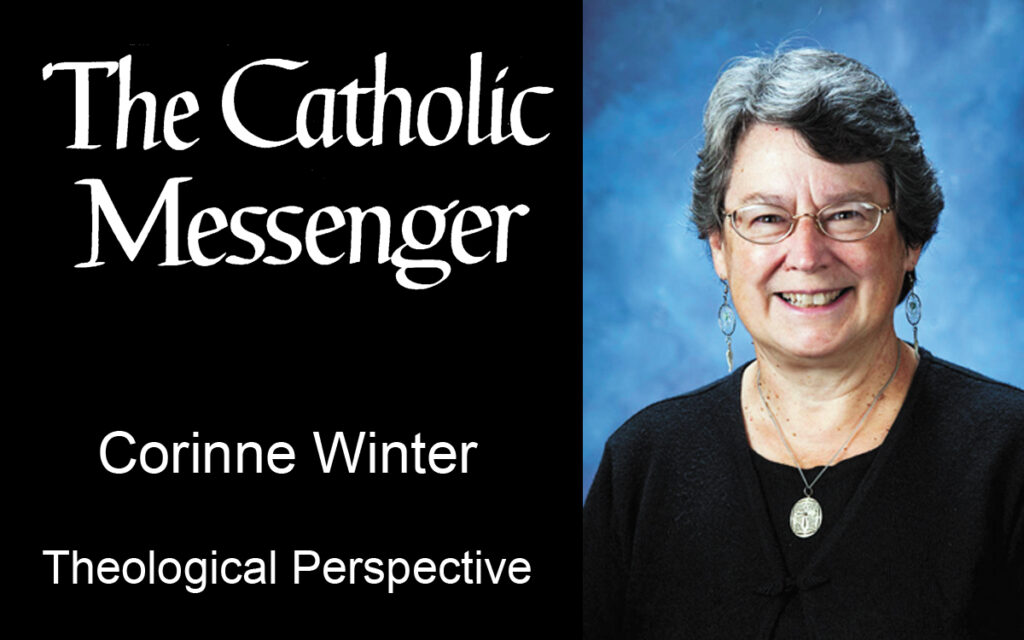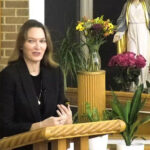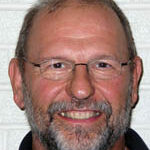By Corinne Winter
Earlier this month, news sources carried an account of a school district in which parents were given the choice to “opt out” of the Black History Month curriculum on behalf of their children. A reporter observed that parents in the same district did not have the choice to opt out of the history curriculum that for over two centuries has ignored the achievements of Black, Latinx and Asian people. As I listened, it struck me that the same danger exists within the study of Catholic Tradition and theology.
 During my first semester at St. Ambrose University in Davenport, my departmental colleagues asked me to develop a course on women’s theology. Readings for the course included works of Black, Latina, Asian and African theologians both Protestant and Catholic. When I shared the syllabus with a friend from elsewhere, he asked whether taking that particular course might not provide students with a “very limited” perspective on Christian theology, one that lacked the insights of key figures from the theological canon.
During my first semester at St. Ambrose University in Davenport, my departmental colleagues asked me to develop a course on women’s theology. Readings for the course included works of Black, Latina, Asian and African theologians both Protestant and Catholic. When I shared the syllabus with a friend from elsewhere, he asked whether taking that particular course might not provide students with a “very limited” perspective on Christian theology, one that lacked the insights of key figures from the theological canon.
Nor did he take my points when I asked whether students might also be limited if they read only the works of white male theologians. As recently as five years ago, textbooks I reviewed were weak in the area of diversity. Works of theologians of color, if mentioned at all, were often described as “other” perspectives rather than as essential to the on-going dialogue.
In the article I wrote last month, I asserted that truth is both one and so immense that no one scholar or school can do it justice. Theologians speak of “inexhaustible mystery,” mystery about which we can and do make true statements without ever providing a full definition. It is one of the things I love about studying theology; everything one hears and reads leads to more questions and the need to learn more. For continuing growth in understanding the mysteries of our faith, one needs to learn from those who are faithful to the teachings of the same Tradition and approach them from diverse perspectives.
Sources for the study of theology include Scripture, the Tradition of the church, human experience and human reason. Each of those sources can be examined in more than one legitimate way.
Diverse approaches provide mutually enriching insights. Diversity matters in a particular way in the area of human experience. The social location of a theologian: historical context, gender, race, class, type of education and more, has a profound influence. It affects her or his language, starting points, emphasis and interpretation of sources. Even in Scripture, which we recognize as the inspired Word of God, we find that the experience of the human authors has led to different approaches to the teachings they set forth: differences of language, literary style, image and emphasis.
Modern theologians bring to their study of the sources the riches and the burdens of their own experience. Since World War II, Christian and Jewish theologians seek an understanding of Christian teaching that can address the horrors of the Holocaust and what it revealed of humanity’s capacity both to treat others cruelly and to ignore atrocities being committed around them. Johann Metz, for example, called Christians to remember and to lament the sufferings borne by victims of injustice, refusing to be content with a world that lacks justice.
Black theologians also challenge Christians to insist on a more just world. Some trace the roots of their work to ancestors who heard in the Bible stories that God takes the side of the oppressed and sets captives free and who sang out that belief in the hymns we call “Spirituals.” Contemporary Black theologians sometimes speak of God and of Jesus as Black, not intending to give a physical description of God, but stressing that God identifies with those who are oppressed. Jesus, who was put to death unjustly as a member of an oppressed people, knows the pain of those who are enslaved, lynched, denied their rights.
Theologians from Latin American communities often speak of God who accompanies them in the struggle to survive, to find a safe place for their families, to be recognized and accepted by others among whom they live. Latin American liberation theologians insist that God “prefers the poor,” by attending to their needs, and calls all of us to do the same. Asian theologians seek ways to speak of God that incorporate the riches of their cultural tradition without distorting the truth of Christianity.
I rejoice to witness the commitment of theologians currently at St. Ambrose to promoting diversity. Encountering diverse voices within theology can and probably should be uncomfortable for those of us whose cultural background has held a privileged place in the academy. We will not understand some of the language and images, much less identify with the experience out of which it arises. However, unless we pay attention, we will rob ourselves of a chance to grow in understanding our faith and we will hinder the church’s efforts to become what God calls us to be — a sign and instrument of communion for all of humanity.
(Corinne Winter is a professor-emerita of St. Ambrose University, Davenport.)











